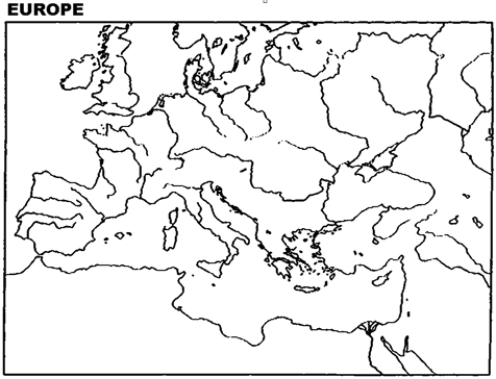Exam 3: The Greeks: From Myth to Reason
Exam 1: The Ancient Near East: the First Civilizations82 Questions
Exam 2: The Hebrews: a New View of God and the Individual76 Questions
Exam 3: The Greeks: From Myth to Reason95 Questions
Exam 4: Rome: From City-State to World Empire92 Questions
Exam 5: Early Christianity: a World Religion79 Questions
Exam 6: The Rise of Europe: Fusion of Classical,christian,and Germanic Traditions89 Questions
Exam 7: The Flowering and Dissolution of Medieval Civilization84 Questions
Exam 8: Transition to the Modern Age: Renaissance and Reformation91 Questions
Exam 9: Political and Economic Transformation: National States, overseas Expansion, commercial Revolution84 Questions
Exam 10: Intellectual Transformation: the Scientific Revolution and the Age of Enlightenment85 Questions
Exam 11: The Era of the French Revolution: Affirmation of Liberty and Equality92 Questions
Exam 12: The Industrial Revolution: the Transformation of Society78 Questions
Exam 13: Thought and Culture in the Early Nineteenth Century82 Questions
Exam 14: Surge of Liberalism and Nationalism: Revolution, counterrevolution, and Unification76 Questions
Exam 15: Thought and Culture in the Mid-Nineteenth Century: Realism, positivism, darwinism, and Social Criticism86 Questions
Exam 16: Europe in the Late Nineteenth Century: Modernization, nationalism, imperialism93 Questions
Exam 17: Modern Consciousness: New Views of Nature, human Nature, and the Arts77 Questions
Exam 18: World War I: the West in Despair83 Questions
Exam 19: An Era of Totalitarianism88 Questions
Exam 20: World War II: Western Civilization in the Balance56 Questions
Exam 21: Europe After World War II: Recovery and Realignment, 1945-198959 Questions
Exam 22: The Troubled Present55 Questions
Select questions type
All of the following statements are true of the Peloponnesian War except
(Multiple Choice)
4.7/5  (27)
(27)
Please define the following key terms. Show Who? What? Where? When? Why Important?
-polis
(Essay)
4.8/5  (37)
(37)
Please define the following key terms. Show Who? What? Where? When? Why Important?
-Pythagoreans
(Essay)
4.8/5  (43)
(43)
The Greek thinker most associated with the study of medicine was
(Multiple Choice)
4.7/5  (32)
(32)
Please use this outline map of Europe to answer the question(s).
 -On the map of Europe,locate the sites of major victories of the Greeks over the invading forces and include the dates of the victories.
-On the map of Europe,locate the sites of major victories of the Greeks over the invading forces and include the dates of the victories.
(Not Answered)
This question doesn't have any answer yet
Which of the following tragic poets subjected the problems of human life to critical analysis and challenged human conventions?
(Multiple Choice)
4.8/5  (36)
(36)
Please use this outline map of Europe to answer the question(s).
 -On the map of Europe,locate the following: Crete,Athens,Sparta,Sicily,Ionia,Delphi,Olympia,the Aegean Sea,the Ionian Sea,the Gulf of Corinth,and the Peloponnesus.
-On the map of Europe,locate the following: Crete,Athens,Sparta,Sicily,Ionia,Delphi,Olympia,the Aegean Sea,the Ionian Sea,the Gulf of Corinth,and the Peloponnesus.
(Not Answered)
This question doesn't have any answer yet
Please define the following key terms. Show Who? What? Where? When? Why Important?
-Dialectics
(Essay)
4.7/5  (28)
(28)
Plato would have argued against which of the following statements?
(Multiple Choice)
4.9/5  (27)
(27)
Explain the influence of the Mycenaean civilization on the development of the Hellenic civilization.
(Essay)
4.8/5  (31)
(31)
Please define the following key terms. Show Who? What? Where? When? Why Important?
-Iliad
(Essay)
4.8/5  (29)
(29)
Showing 61 - 80 of 95
Filters
- Essay(0)
- Multiple Choice(0)
- Short Answer(0)
- True False(0)
- Matching(0)